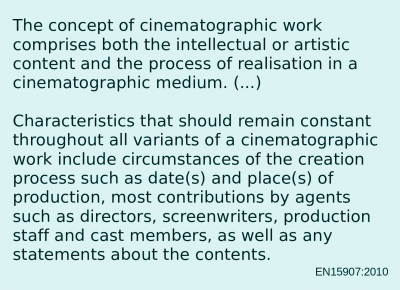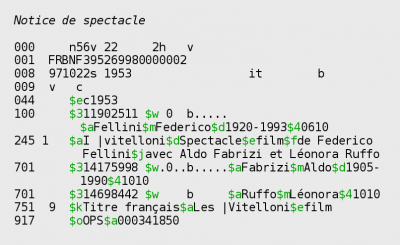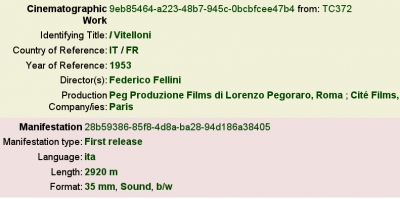Description levels: A worked example
From filmstandards.org
From the TC 372 Workshop Compendium
Description levels do not only offer new ways for user interaction with filmographic databases, but can also ecenomise the production of metadata.
|
<mediaplayer image='http://filmstandards.org/media/prossimamente2.jpg'>http://filmstandards.org/media/vitelloni-trailer-it.flv</mediaplayer>
|
This short piece is a trailer. For the moment, we will ignore the question if a trailer can be regarded as a version or variant of the work which it advertises, or if it is something entirely different. This trailer just serves to give us an idea of the work that will be discussed in the following. |
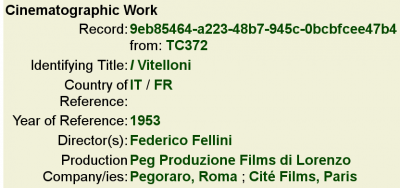
|
An elementary work-level description would comprise the elements from EN 15744 minus those that do not belong to the work level in EN 15907. The figure on the left gives an idea of what a minimum work-level description could look like. Here is the XML record, the transformation script, and the resulting HTML page. |
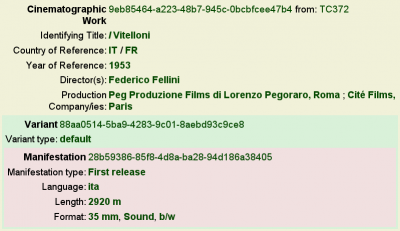
|
EN 15907 allows manifestations to be directly associated with a cinematographic work, or via a variant level. Anticipating that we may want to distinguish between variants of this film work, we can insert a default Variant entity and associate our manifestation(s) with this. Here is the XML record, the transformation script, and the resulting HTML page. |
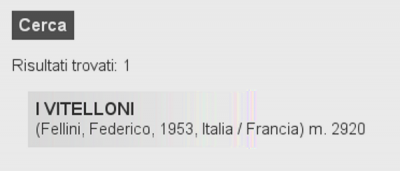
|
Finally, we may wish to include information about a copy as an instance of the manifestation. This is what the Cineteca Nazionale publishes about their circulation copy of I Vitelloni. And here is what we can make of this information (including some educated guesses) in an EN 15907 metadata representation. |
